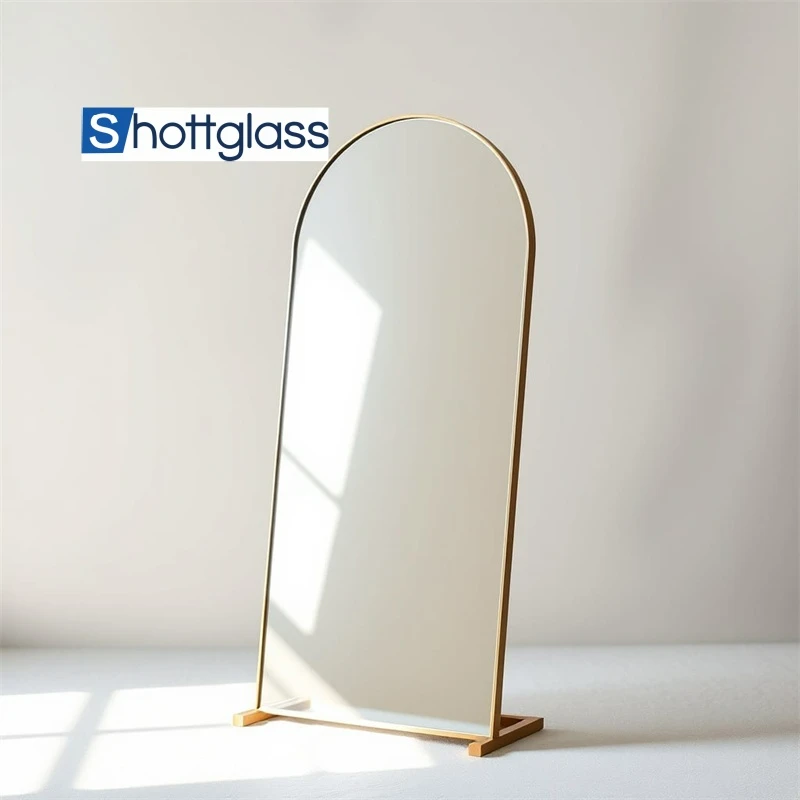Oct . 12, 2024 10:42 Back to list
The Features and Benefits of Coated Glass
Coated glass is an advanced glass material designed to enhance the performance, durability, and aesthetic of traditional glass. By applying various coatings, this specialized glass can offer improved energy efficiency, protection against harmful UV rays, and greater strength, making it highly versatile in both residential and industrial applications. Below, we’ll dive into the specifics of coated glass, its uses, and the types of coatings available.
Understanding Coated Glass Meaning
Coated glass refers to a type of glass that has a special surface coating applied to enhance its functionality. This coating can be applied during the manufacturing process or afterward and can transform standard glass into a material that provides superior energy efficiency, glare reduction, and improved durability. The coated glass meaning lies in its ability to perform beyond regular glass, making it a popular choice for modern construction, automotive uses, and high-tech optical applications.
Coated Glass Uses in Construction and Industry
The coated glass uses are vast, spanning various industries including construction, automotive, and technology. In the construction industry, coated glass is favored for its ability to reduce heat transfer, enhance insulation, and lower energy costs. This makes it especially valuable for buildings looking to meet energy-efficiency standards. In automotive applications, coated glass reduces glare and improves visibility while protecting passengers from harmful UV rays. Additionally, in high-tech industries, coated glass is used in lenses, screens, and solar panels to enhance clarity and reduce light reflection.
The Difference Between Coated Glass and Ordinary Glass
When comparing coated glass to ordinary glass, the differences are notable. Regular glass provides basic transparency and support, but it lacks the enhanced performance features that coatings bring. Coated glass can offer anti-reflective properties, reduced glare, better insulation, and even improved safety, depending on the type of coating used. For instance, Low Emissivity Glass blocks UV rays and infrared light, helping to control the internal temperature of a building and reduce energy costs, whereas regular glass allows UV rays to pass through, leading to heat gain and fading of interiors.
Types of Glass Coating and Their Benefits
There are various types of glass coating designed to meet different functional requirements. Some of the most common types include:
- AG Glass and AR Glass: AG Glassreduces glare, making it ideal for digital displays, while AR Glass minimizes reflection, making it essential in precision optical applications.
- Reflective Glass Sheet: This coating helps reflect sunlight, reducing heat build-up and making it perfect for buildings in sunny climates.
- Low Emissivity Glass: Known as Low-E Glass, it is used to improve energy efficiency by blocking infrared and UV light while allowing visible light to pass through.
- AR Glass Sheet: Thiscoating reduces reflection and improves clarity, making it suitable for applications requiring high optical precision.
Each of these coatings enhances the glass’s ability to perform specific tasks, from energy efficiency to glare reduction.
The Future of Coated Glass Technology
As demand grows for more sustainable, energy-efficient, and durable materials, coated glass is becoming a preferred choice in many industries. The variety of types of glass coating available today allows manufacturers to tailor the glass to specific needs, whether for energy-efficient buildings, automotive enhancements, or precise optical applications. The continuous advancement of coating technology ensures that coated glass will remain an essential material for years to come, offering better performance, reduced costs, and a more sustainable future.
In summary, coated glass delivers superior performance over standard glass in a range of applications. Its ability to reduce energy costs, enhance durability, and provide protection from environmental factors makes it an essential material for modern construction and industrial projects.
-
Types of Reflective Glass
NewsNov.17,2025
-
What Is Dichroic Glass?
NewsNov.17,2025
-
Smart LED mirrors can have touch controls
NewsNov.17,2025
-
Laminated glass improves energy efficiency
NewsNov.17,2025
-
Insulated glass enhances building comfort
NewsNov.17,2025
-
Acid etched glass offers elegant privacy
NewsNov.17,2025
Related PRODUCTS














